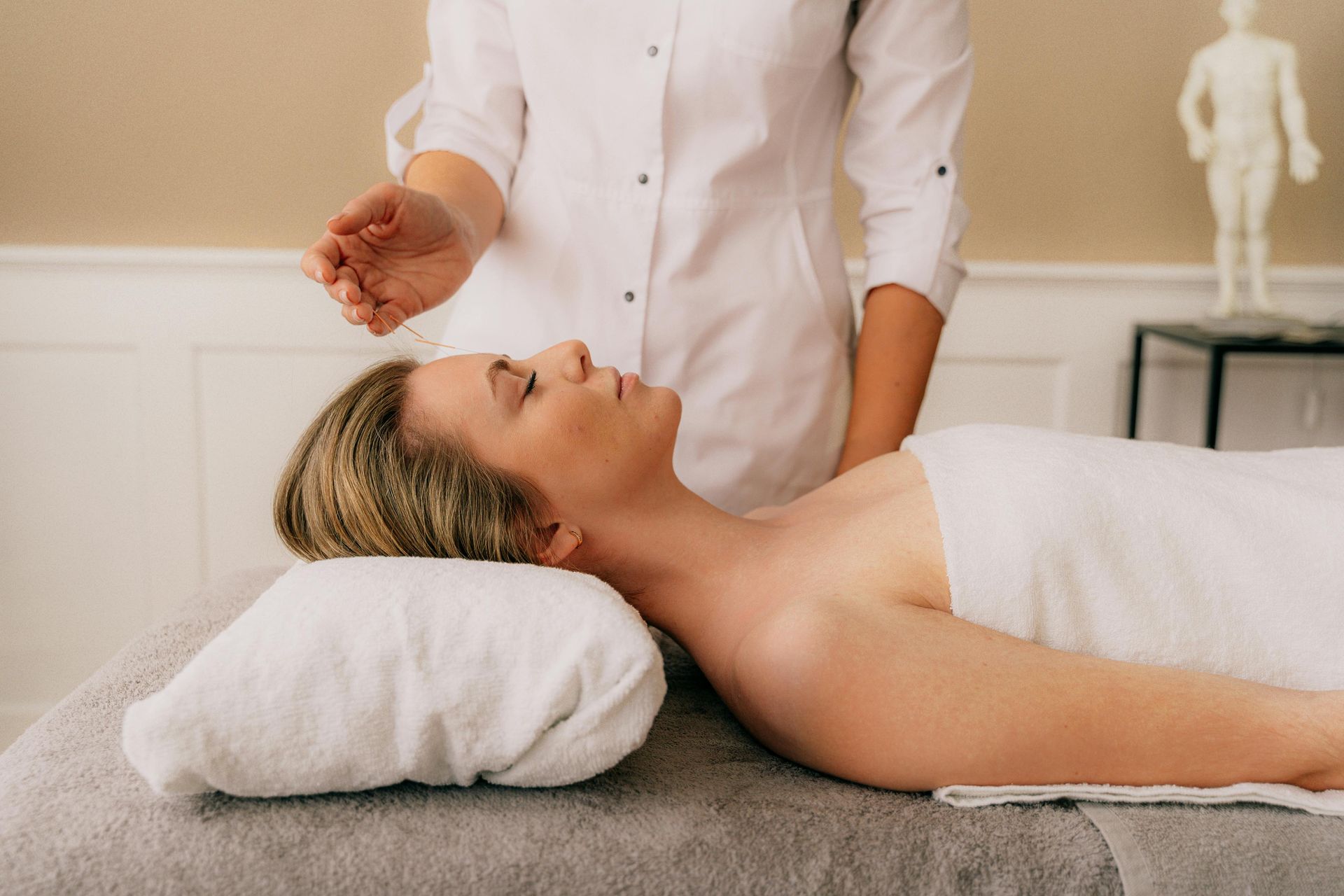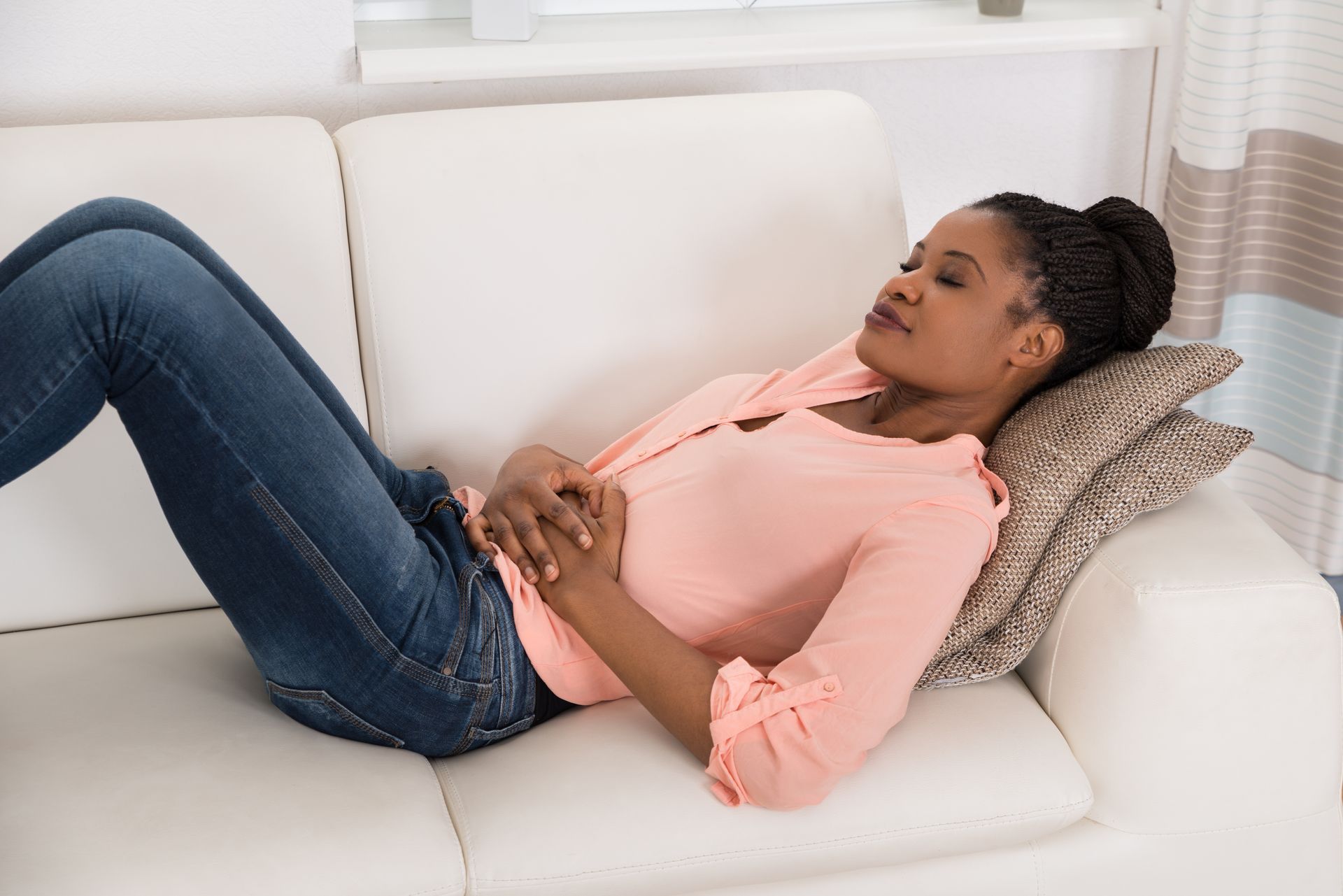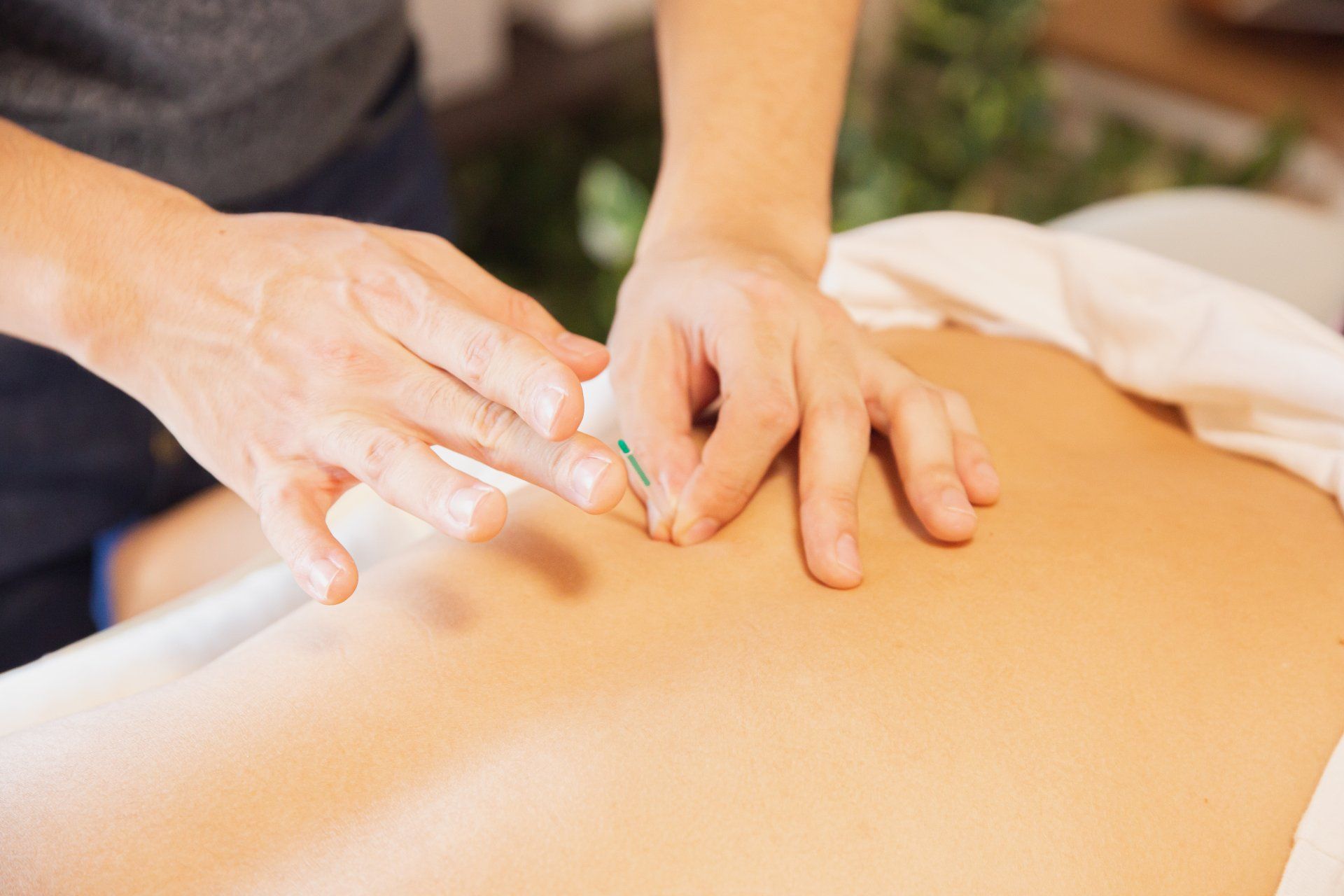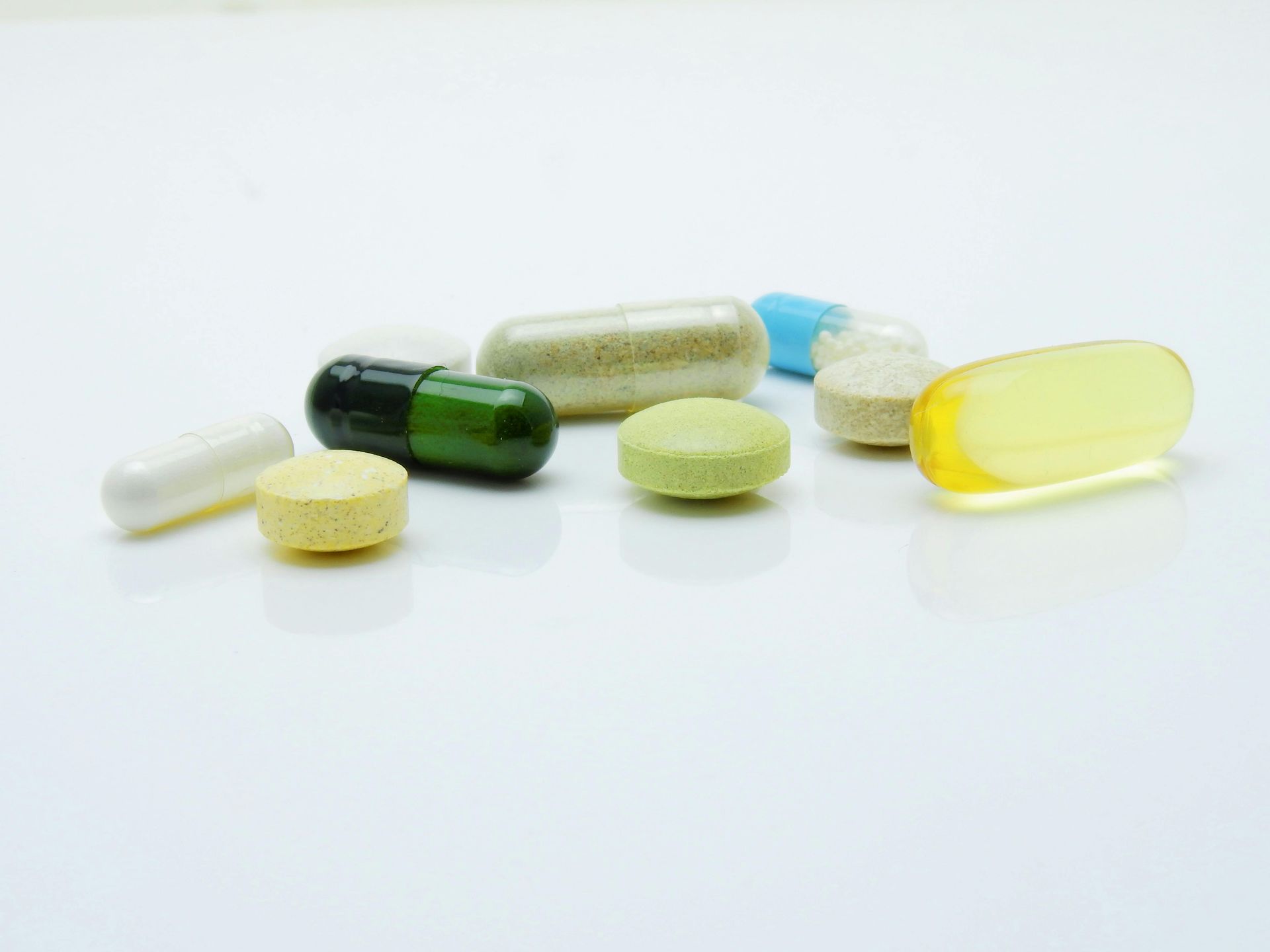Most Common Acupuncture Points for Fertility
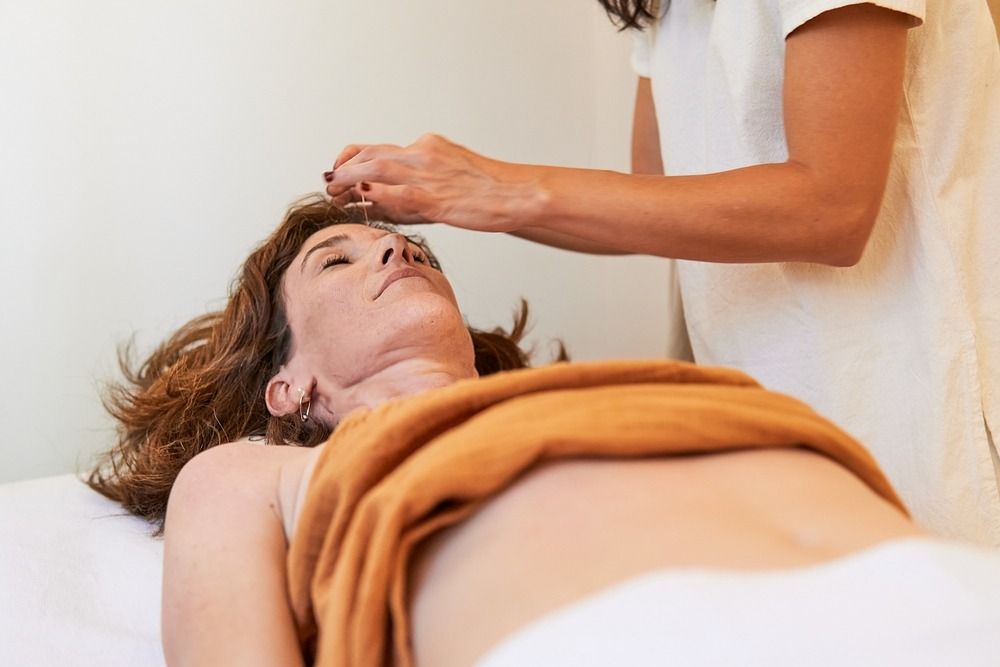
The Traditional Chinese Medicine (TCM) practice of acupuncture for medicinal and wellness purposes is at least 3000 years old and continues to be part of standard medical practice across Asia today. Over the past several decades, acupuncture has quickly gained respect in Western medicine. Here in the United States, at least 10 million people receive acupuncture each year,¹ fueled by the fact that science is starting to grasp how and why it works for so many different conditions, including helping couples improve their fertility situation. Here at Pulling Down the Moon, our highly trained fertility acupuncture practitioners have helped many couples in their journey toward having a baby. Naturally, we get a lot of questions about the specific acupuncture points for fertility themselves, so today we will cover some of the most important points (pun intended).
What is Acupuncture for Fertility?
Acupuncture involves inserting extremely thin, sterile, single-use needles into specific points on the body that stimulate meridians (energy channels throughout the body) to balance and normalize the flow of “qi” (pronounced “chee”), the body’s life-giving energy force, as described by TCM. In Western science, qi corresponds with the stimulation of nerves within the nervous system, which can help regulate and optimize the function of muscles, organs, glands, connective tissues, etc.²
Each acupuncture point corresponds to certain parts of the body, which may or may not be near the actual point. For example, when we have men doing acupuncture for fertility, we need to let them know that there are no acupuncture points for fertility… down there exactly (if you take our meaning). Keep in mind that there are acupuncture points near there, however, and we will describe them below. Here at Pulling Down the Moon, our fertility acupuncturists can provide this holistic fertility service to both men and women, which helps improve the fertility equation on both sides.
Does Acupuncture for Fertility Work?
In addition to centuries of documentation within Traditional Chinese Medical practice, current scientific studies affirm that acupuncture can improve fertility outcomes and increase the chances a couple has of becoming pregnant.³ Here is what researchers have discovered so far:
- In women, acupuncture can rebalance sex hormones essential for healthy ovulation and follicle development, as well as improve blood circulation to the uterus.⁴ All of this improves the odds of conception, even for women struggling with PCOS, POI, and those undergoing IVF.
- When it comes to male fertility, acupuncture has demonstrated its efficacy in improving sperm count, sperm mobility, and sperm quality.⁵
- Acupuncture is also used to lower stress levels, which may play a key role in fertility as well. High levels of stress can impact everything from circulation and hormones to physical pain and, obviously, mental health. Several studies indicate that acupuncture can help relieve stress, which can help improve circulation and hormone regulation to improve fertility outcomes.⁶
Of course, acupuncture is just one of the many holistic fertility services that can boost your chances of having a baby. Adding fertility massage therapy and fertility nutrition counseling to acupuncture can enhance your fertility chances even more, and that goes for both men and women (because it takes two to tango in this fertility dance).
Commonly Used Acupuncture Points for Fertility Treatments
Now let’s get down to the points… specifically, some of the most important acupuncture points for fertility. We will describe where they are and what they do. It’s important to note that your fertility acupuncturist may use all or only some of these points, depending on your unique situation. Everyone’s fertility journey is unique, so the points used will depend on the specific fertility issues you’re going through. These are just some of the most common ones that affect fertility. Make sure to schedule an appointment to talk with our acupuncture team personally to work out a plan to improve all aspects of your fertility. Remember, this is highly personalized and these are just some (not all) of the potential points that might be used.
1. Conception Vessel 6: Qi Hai 氣海 (“Sea of Qi”)
This acupuncture point sits about an inch and a half below your navel, along the midline of your body. Stimulating this point can regulate a woman’s menstrual cycle, balance hormones, improve circulation to the reproductive organs, and boost ovulation rates.
2. Bladder 23: 腎俞 (“Shen Shu”)
The Bladder 23 acupuncture point sits near the waist on your lower back, in the mid-space between your L2 and L3 vertebrae. It’s a sensitive point that can improve hormone regulation and circulation to the uterus. It also helps bring down your stress levels.
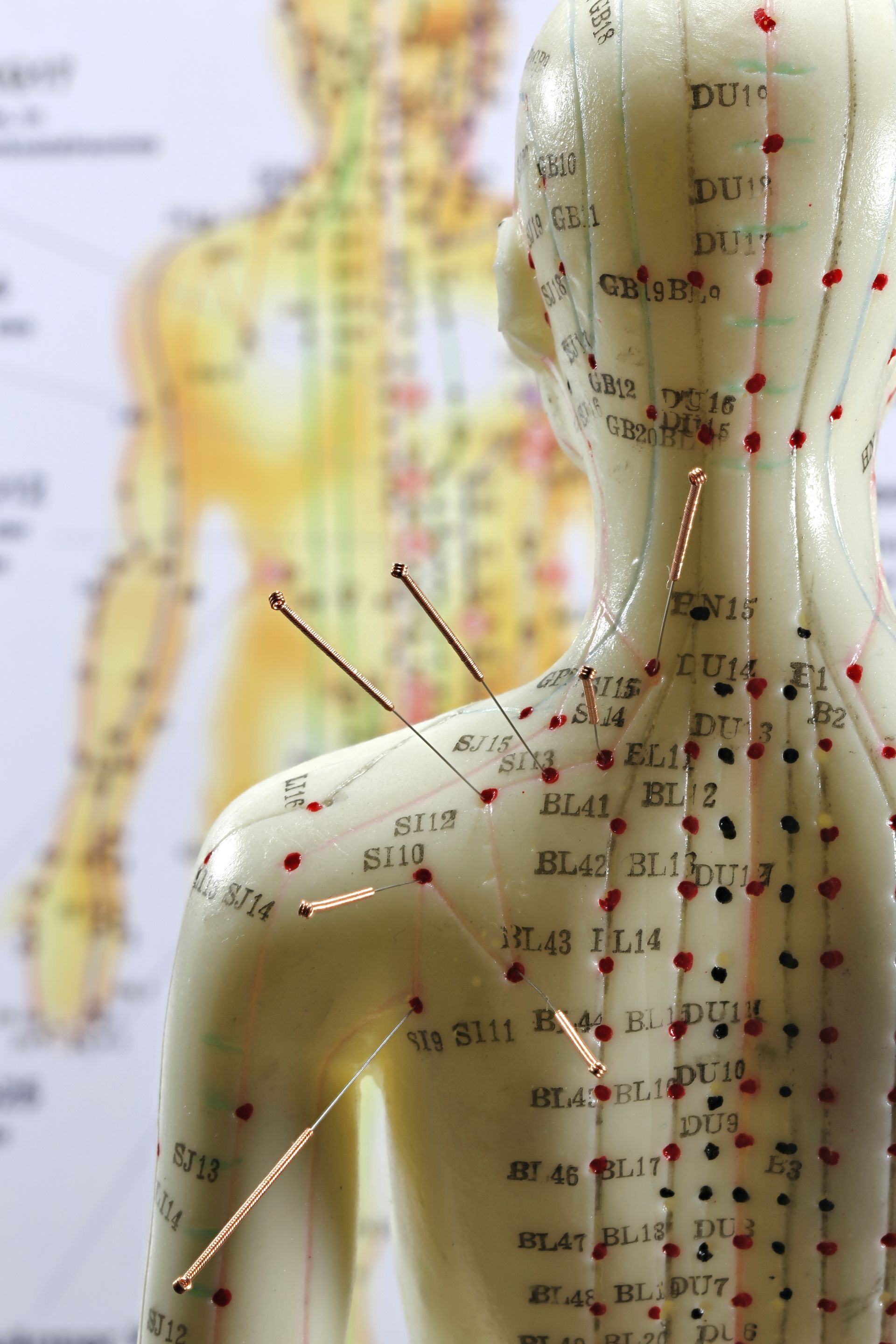
3. Kidney 3: Tai Xi - 太谿 (“Great Ravine”)
This is an important point for both men and women. It can help boost male sperm count and motility and help female egg health. The Kidney 3 acupuncture point sits just inside the “ravine” of your inner ankle, which stimulates reproductive organ function. The great thing about this point is that you can also stimulate it at home through acupressure as well! Simply apply gentle massaging circles on the point with your thumb every day. This is for both men and women!
4. Extra Point: Zigongxue - 子宫穴: (“Uterus Point”)
Located about three inches below your belly button, just a little above the pubic bone sits the “uterus point”. For women, this point can calm disorders of the uterus, including painful and irregular periods, while regulating and improving uterine health overall.
5. Conception Vessel 4: Guan Yuan - 關元 (“Origin Pass”)
Just below Ren 6 (above) lies Guan Yuan/CV4. In addition to boosting aspects of both male and female fertility, this point is also used to help relieve low back pain, support digestive issues, and stop incontinence. Getting your body to absorb nutrients from food or supplements for fertility is crucial for improving fertility across the board. This is why we often recommend our clients try the 12-week fertility nutrition program along with acupuncture. Let’s improve your fertility chances from every possible angle!
7. ST30 Acupuncture Point: Qi Chong - 氣沖 (“Surging Qi”)
This acupuncture point is situated just at the inner crease of the groin. It can be used on both men and women. For women, this helps regulate menstruation. For men, it helps with sperm count and quality.
8. KD13: Qi Xue - 氣穴 (“Qi Hole”)
Sitting about three inches below the belly button and about half an inch to the side of the midline, the KD13 acupuncture point is also helpful for regulating abdominal organs, especially your kidneys and reproductive organs. The kidneys, of course, are essential for removing toxins from the body, so it’s especially important in helping improve fertility journeys where toxins may interfere with hormonal functions.
Complementary Therapies to Acupuncture for Fertility
Now, although most of our clients find acupuncture to be a comfortable practice, we totally respect that some people worry about needles generally. And that’s OK. Acupuncture is an effective, safe option for the vast majority of people going through their fertility journey, but if you aren’t ready to try it, there are many other holistic fertility therapies, including fertility massage therapy, we provide as well. We are dedicated to helping you in all of these ways too:
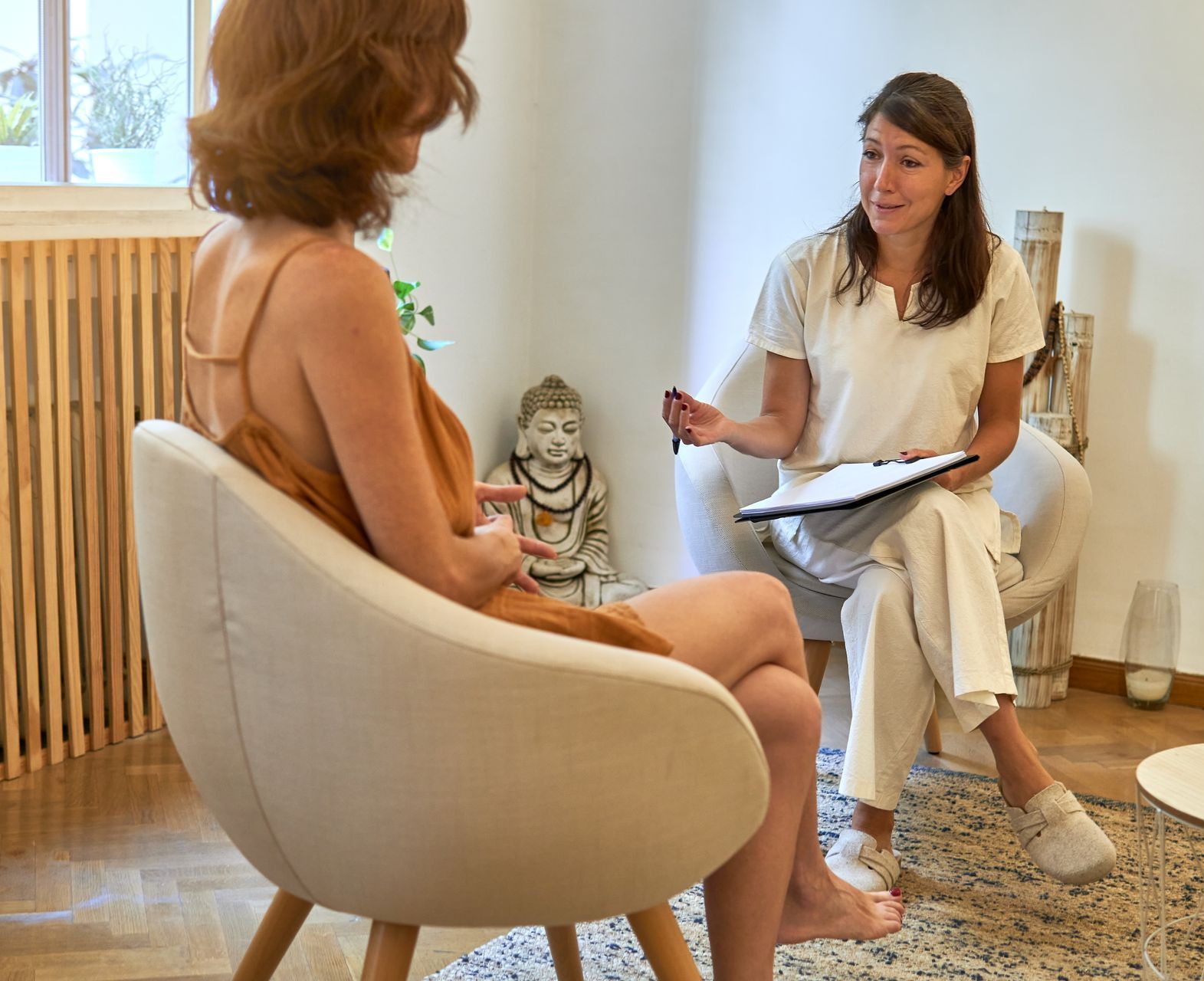
1. Fertility Yoga
Our fertility yoga classes are a wonderful and powerful way to relieve stress and also to help align your body, naturally massaging glands that can balance hormones through gentle, powerful yoga poses.⁷
2. Meditation
There are clear links between stress and infertility.⁸ While it may not be the only factor in your journey, we have found that effective stress reduction techniques like yoga and meditation have helped many of our couples along their journey to having a baby.⁹
3. Lifestyle Changes
Any lifestyle changes you can make to reduce your stress, lower your toxin exposure, and improve your nutritional intake and absorption are key to boosting your overall fertility, and this is true for both women and men. Talk with our certified
fertility nutritionist about dietary changes and upgrades you can make in your efforts to get pregnant.
Learn More about Your Acupuncture Points for Fertility
The acupuncture points you need to boost your fertility may be different from someone else's, so it's important to be evaluated by a certified acupuncturist who specializes in fertility concerns. Here at Pulling Down the Moon, we are dedicated to helping couples at any stage of their fertility journey. Please
contact us to ask about all of our services and affordability options, and if you are ready to get started
schedule an appointment with us today and join our amazing fertility community.
References
- Jishun, J., & Mittelman, M. (2014). Acupuncture: Past, Present, and Future. Global Advances in Health and Medicine, 3(4), 6–8. https://doi.org/10.7453/gahmj.2014.042
- Mayo Clinic. (2022, April 30). Acupuncture. Mayoclinic.org. https://www.mayoclinic.org/tests-procedures/acupuncture/about/pac-20392763
- Huang, D., Huang, G., Lu, F., Stefan, D., Andreas, N., & Robert, G. (2011). Acupuncture for infertility: is it an effective therapy? Chinese Journal of Integrative Medicine, 17(5), 386–395. https://doi.org/10.1007/s11655-011-0611-8
- Xu, J., Zhao, A., Xin, P., Geng, J., Wang, B., & Xia, T. (2022). Acupuncture for Female Infertility: Discussion on Action Mechanism and Application. Evidence-Based Complementary and Alternative Medicine, 2022, 1–17. https://doi.org/10.1155/2022/3854117
- Nurwati, I., Murti, B., Budihastuti, U. R., Prakosa, T., Laqif, A., Melinawati, E., Prasetya, H., Susanto, L., & Sukmawati, M. (2022). Electroacupuncture Effectiveness for Treating Idiopathic Male Infertility. Medical Acupuncture. https://doi.org/10.1089/acu.2021.0063
- Balk, J., Catov, J., Horn, B., Gecsi, K., & Wakim, A. (2010). The relationship between perceived stress, acupuncture, and pregnancy rates among IVF patients: A pilot study. Complementary Therapies in Clinical Practice, 16(3), 154–157. https://doi.org/10.1016/j.ctcp.2009.11.004
- Sengupta, P. (2012). Challenge of infertility: How protective the yoga therapy is? Ancient Science of Life, 32(1), 61. https://doi.org/10.4103/0257-7941.113796
- Rooney, K. L., & Domar, A. D. (2018). The relationship between stress and infertility. Dialogues in Clinical Neuroscience, 20(1), 41–47. https://www.ncbi.nlm.nih.gov/pmc/articles/PMC6016043/
- Deshpande, S., Patel, K. D., Parulkar, T., Mahabalesh, K., Madhusudhan, P., Madhusudhan, D. K., & Thimmapuram, J. (2023). Effect of Heartfulness meditation based integrative therapy on infertility outcomes: A retrospective case series evaluation. Journal of Ayurveda and Integrative Medicine, 14(6), 100793. https://doi.org/10.1016/j.jaim.2023.100793
Meet the Author: Christine Davis
View Profile: Director of Acupuncture at Pulling Down the Moon
Christine is a Licensed Acupuncturist and serves as the Acupuncture Director at Pulling Down the Moon, a fertility-focused integrative medicine center in Chicago. With a Master of Science in Oriental Medicine and a Bachelor of Science in Nutrition, she has been a Board Certified practicing acupuncturist since 2004. Christine's diverse training includes studies in Chinese Tai Ji Quan and Gong Fu in China, as well as Chinese herbology at the Beijing University of Traditional Medicine. A Certified Hatha Yoga Instructor, she emphasizes achieving lasting wellness through traditional methods of moderation and balance. Christine has supported numerous couples on their fertility journey, emphasizing the importance of addressing both the body and the mind. Beyond her professional endeavors, she enjoys family time, music, walks in the Chicago Botanic Garden, and reading.


